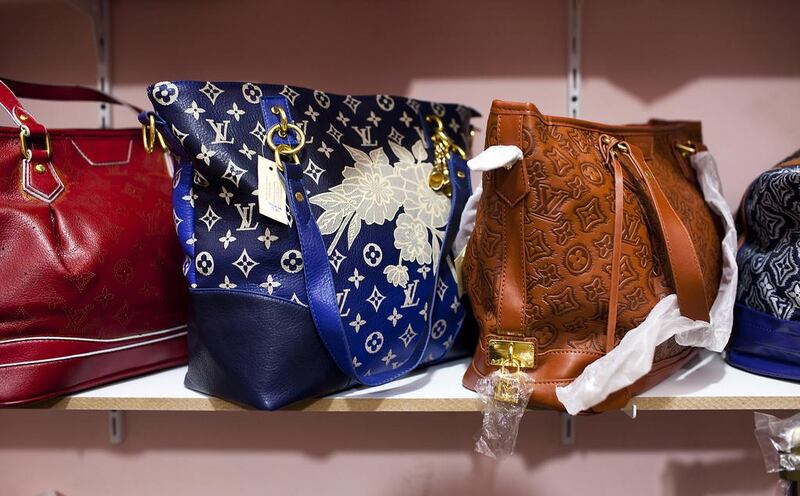DUBAI // More inspections should be carried out by customs officials and tougher penalties handed down to people who supply or produce counterfeit goods, according to an expert in brand protection.
Each year an estimated US$50 billion (Dh183.5bn) worth of counterfeit goods flood into the Arab region, including medicines, skin- care products, watches and electrical goods.
This is part of a US$800bn annual trade in fake goods worldwide, said Omar Shteiwi, chairman of the Brand Owners’ Protection Group (BOPG).
“We are working with the UAE Government and authorities to tackle this issue but I feel more could be done,” said Mr Shteiwi, who was speaking on the sidelines of the First Intellectual Property Forum, being held at Jumeirah Beach Hotel on Wednesday.
“The problem of the counterfeit trade isn’t improving. The European Union say it’s getting better but the brands themselves feel things haven’t really improved that much.”
He called for tougher regulations for the protection of intellectual property in the UAE after signing a memorandum of understanding between BOPG and Dubai Economic Council.
The agreement means the two organisations will study regulations and see how the current rules should be amended.
These changes will then be sent to the Ministry of Economy, which will consider the findings with alterations possibly being made.
“Under the current laws the police can only act on counterfeit cases after a complaint has been made by the brand owner,” said Mr Shteiwi.
“In the United States, for example, police can take a much more proactive role and investigate cases without prior complaints from brands. It would be great to get something like that here.”
Mr Shteiwi said reports that some businesses in Jebel Ali Free Zone were manufacturing fake goods were true but swift action had been taken by the authorities.
“There are more than 7,000 companies in that free zone so it is likely that a small number would be doing this,” he said.
“However, we have worked with the authorities closely on this and have done raids targeting businesses that do this kind of thing.”
Each year 13 million containers arrive at the country’s ports with Dubai Customs officials inspecting around 3 per cent, which is the global average, said the brand owners’ group chairman.
“One way we could track down more of these fake goods is to have more inspections but, obviously, that means there need to be many more inspectors employed,” he said.
The quality of fake goods has also been improving in recent years.
“For things like food, it can be almost indistinguishable to the real thing,” he said. “But one of the big concerns for us is the issue of fake medicines, and it’s estimated that one in 10 medicines internationally are fake,” said Mr Shteiwi. “That is something which is putting lives at risk.”
The BOPG carries out four training sessions each year for Dubai customs officials as well as providing similar training to officers in Abu Dhabi, Ras Al Khaimah, Sharjah and Fujairah.
“Education is an important element of this, so we also go into schools and warn children of the dangers of using fake goods,” he said.
The First Intellectual Property Forum concludes on Thursday.
nhanif@thenational.ae






